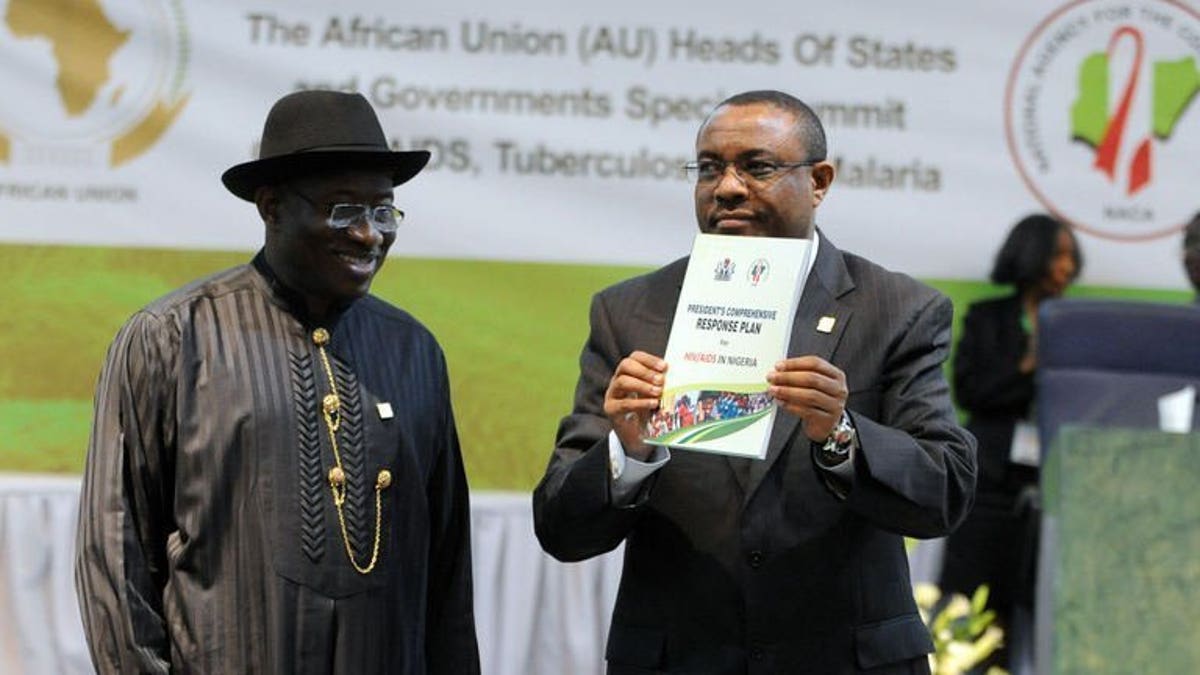
Nigeria's President Goodluck Jonathan looks on as Ethiopian PM Hailemariam Desalegn displays a publication at the opening session of the African Union Summit on health focusing on HIV/AIDS, TB and Malaria in Abuja on July 15, 2013. African leaders called for increased funding Monday to contain HIV/AIDS, TB and malaria as the continental health summit opened in Nigeria's capital. (AFP)
ABUJA (AFP) – African leaders called for increased funding Monday to contain HIV/AIDS, tuberculosis and malaria as a continental health summit opened in Nigeria's capital.
Among the 10 heads of state in attendance was Sudan's President Omar al-Bashir, who is wanted by the International Criminal Court on charges of war crimes, crimes against humanity and genocide.
Nigeria is a member of the ICC and has a legal obligation to arrest Bashir but defended the invitation by saying it did not have the authority to bar him from an African Union summit.
UN Population Fund executive director Babatunde Osotimehin pointed to key gains made against the diseases over the last decade.
In 2001, "HIV treatment in Africa was almost non-existent. Just 11 years later, 7.5 million people were receiving anti-retroviral therapy," he said.
However he said that "increased domestic and international funding" was needed to "maintain momentum".
Ethiopian Prime Minister Hailemariam Desalegn, the current AU chair, similarly called on non-government bodies to "scale up" funding.
The conference was overshadowed by fierce criticism from rights groups over the attendance of Bashir, accused of orchestrating genocide and other crimes during the conflict in Sudan's Darfur region.
Hosting Bashir is an "affront to victims" of the Darfur conflict, said Elise Keppler of Human Rights Watch.
The visit is the Sudanese leader's first to west Africa since 2009, when the first ICC warrant against him was issued.
"The event that is taking place is an AU summit," Reuben Abati, spokesman for Nigerian President Goodluck Jonathan, told AFP.
"Nigeria is not in a position to determine who attends an AU event and who does not attend an AU event," he added.
Human Rights Watch has said the AU resolution to ignore the warrants has "no bearing on Nigeria's obligations as an ICC member".
Rights activists in Nigeria were planning to go to court in an effort to force Bashir's arrest.
